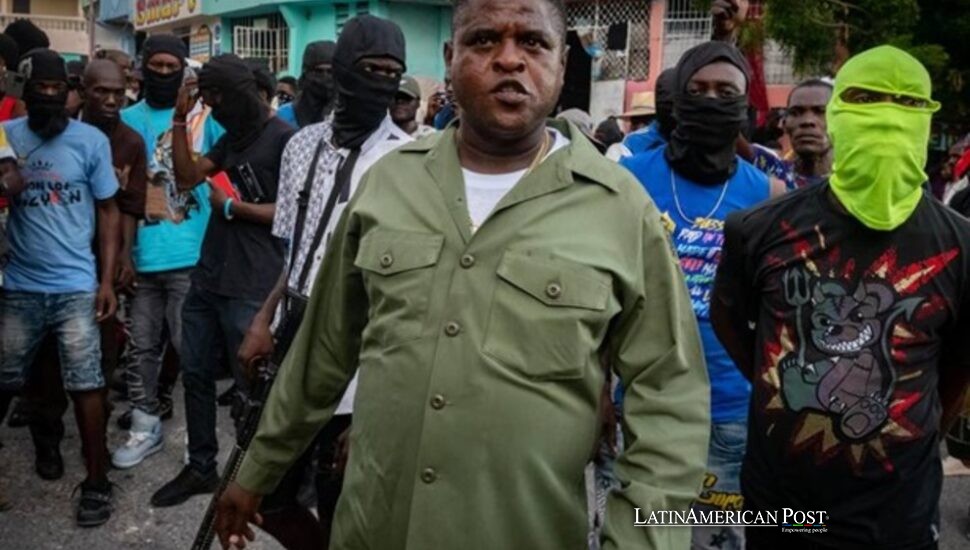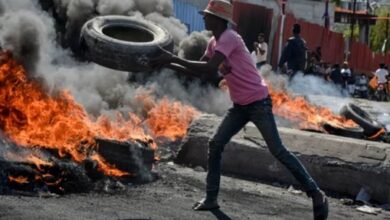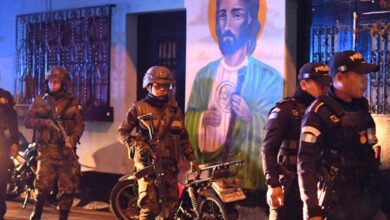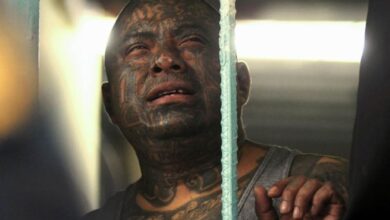Haiti’s Most Wanted: Barbecue, Bounties, and the Fragile Theater of Power

As Port-au-Prince teeters under the weight of curfews and gunfire, the man at the center—once a police officer, now Haiti’s most notorious gang leader—issues video missives like press releases, daring the world to arrest him without telling “lies.”
From Patrolman to Powerbroker
Jimmy “Barbecue” Cherizier didn’t emerge from nowhere. He was born in Port-au-Prince’s General Hospital in 1977, raised in Delmas 4, and joined Haiti’s National Police as a young man who, by his own account, believed in the institution. For fourteen years, he wore the badge. But Haiti is not kind to its public servants, and over time, the line between uniform and insurgency thinned—until he stepped over it.
By 2017, after a botched operation in Grand Ravine, and again in 2018 when the La Saline massacre claimed more than seventy lives, Cherizier’s name no longer surfaced in police logs—it appeared in UN reports and human rights dossiers. He’s denied involvement, but the message he repeats is less a defense than a diagnosis: “The system made me.” That system—corrupt, brittle, often absent—had no counterargument.
After his break with the police, he says, no one even asked for his uniform back. But he kept his network. He kept his guns. And what followed was a rebrand of remarkable boldness: from a rogue officer to the public face of G9 and Allies, a federation of gangs that now governs entire stretches of the capital. In neighborhoods where the state is a rumor, Cherizier’s coalition became the arbiter of everything—movement, food, survival.
Bounties, Broadcasts, and the Performance of Defiance
On paper, the escalation is dramatic: the U.S. State Department doubled the bounty for Cherizier last week, offering $5 million for information leading to his capture. It also unsealed charges against an ally, Bazile “Fredo” Richardson, for allegedly wiring U.S.-sourced funds to support Viv Ansanm, Cherizier’s latest gang coalition.
Cherizier’s response? Not fear. Not hiding. A 35-second video posted online, in English. Calm, poised, defiant. “You can’t tell lies,” he warned, suggesting cooperation was possible—on his terms. It was the kind of performance that’s become his signature: half threat, half invitation.
He’s always known the value of optics. He films himself in fatigues, flanked by men in black, rifles slung casually. He stages blockades, then removes them. His moniker “Barbecue” may have benign roots—his mother once sold grilled meat—but the darker rumor, that it refers to the way his enemies died, hangs over him like smoke. He never confirms it. He doesn’t have to.
Every message serves multiple audiences. To supporters, he’s the neighborhood’s president. To enemies, he’s a figure of fear. To the state? A question remains unanswered.
The State of Emergency Is Real—and So Is the Vacuum
This isn’t just a story about one man. It’s about what allowed him to rise.
For months, Haiti has been in a declared state of emergency. And yet the gangs aren’t just surviving—they’re consolidating. Government compounds burn. Police stations are abandoned. Every major road in and out of Port-au-Prince passes through territory held by armed groups. In this terrain, Cherizier’s threat to “overthrow” the Transitional Presidential Council doesn’t sound like hyperbole.
The council, installed to guide the country to elections, now must share the map with warlords. And no one—not the UN, not the U.S., not Haiti’s frayed police—has put forward a strategy that retakes the capital without blood or compromise.
This is why the $5 million bounty feels less like a reward and more like a wager. It’s meant to shift the game. But it also acknowledges that traditional levers—sanctions, indictments, condemnation—aren’t working. Cherizier still walks the neighborhoods he controls. He still posts videos. He still has time to shape the narrative.
What Justice Looks Like Now—And What Comes After
The dream, in Washington, is simple: capture, extradite, convict. But on the streets of Delmas, the dream is different: fewer checkpoints, fewer bodies, more water, more food. Those are other priorities—and they will require different tools.
If Cherizier is arrested, someone will replace him. If he’s killed, he’ll become a martyr to some, a cautionary tale to others. If he’s bargained with—offered leniency in exchange for peace—the signal will be deafening.
But justice isn’t only about consequences. It’s about alternatives. And that’s where the deeper challenge lies: no one has offered Haiti a compelling plan to fill the space Cherizier now occupies. No security force to trust. No government presence that can outlast the gang’s grip. Until that changes, the next Barbecue will be warming up in the wings.
Haiti has lived this cycle too many times—charismatic outlaw, public panic, international focus, and then a return to crisis. Cherizier, ever the showman, leans into this. He claims to speak for the forgotten. But in doing so, he dares the state to prove it has a voice of its own.
In the end, Cherizier is both product and protagonist of a system that forgot how to function. The bounty is significant, the threats are real, and the videos keep coming. Whether he falls in a raid or walks into history through some future negotiation, the more urgent question remains: can Haiti build a state where men like him don’t rise at all?
Also Read: Colombia’s Indigenous Guard Risks Everything to Bring Recruited Children Home
Until then, neighborhoods adjust to new checkpoints. Mothers send kids to school with whispered routes. A nation lives between fear and fatigue. And somewhere in Delmas, Jimmy Cherizier stares into a camera lens and asks—once again—to be heard on his terms.
Credits: Reporting sourced from EFE.





